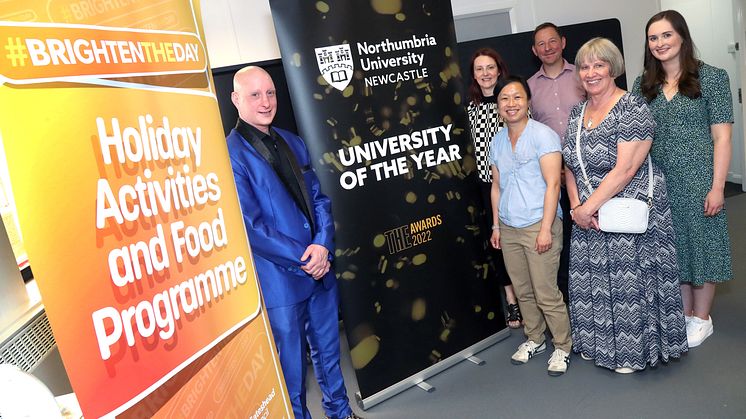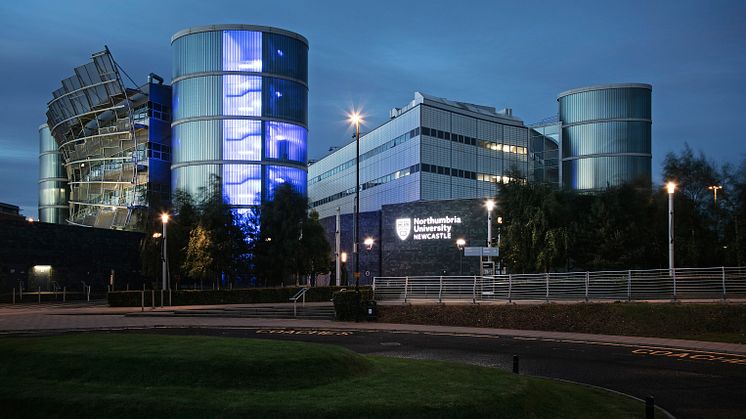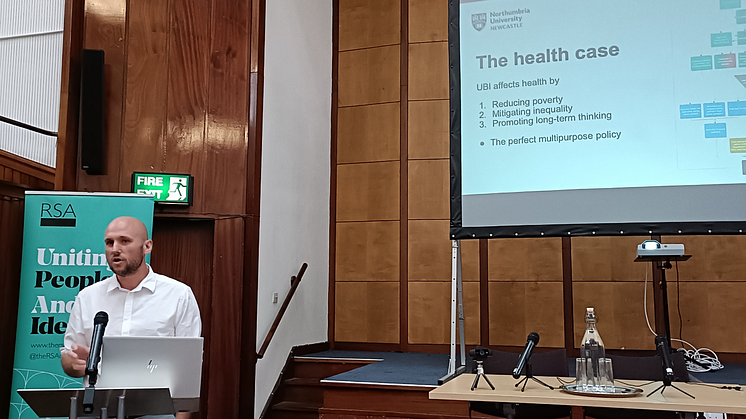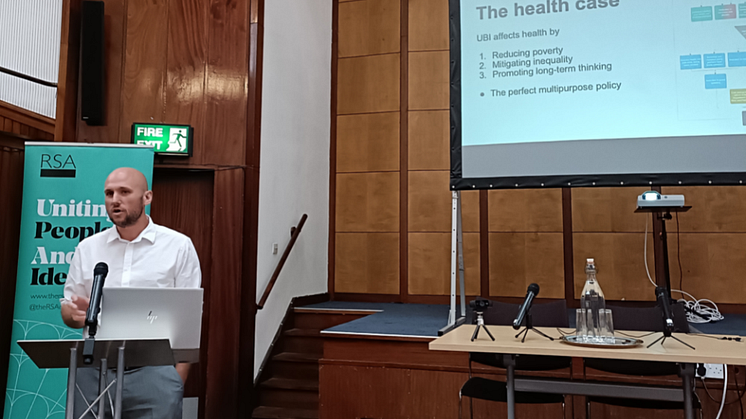
Press release -
Northumbria-led research on basic income pilot gains significant media interest
Research by Northumbria University academics is behind proposals gathering significant momentum and media interest to trial a universal basic income programme in England, worth £1,600 to participants.
The concept of a universal basic income is for the Government to provide Britons with a set income to meet their basic needs. There were calls for it to be introduced to alleviate hardship during the Covid-19 pandemic and the Welsh Government is currently piloting a basic income for care leavers
Professor Matthew Johnson and Senior Research Fellow Elliott Johnson have carried out extensive research and community consultation exercises, in partnership with communities in Jarrow and East Finchley and independent think tank Autonomy, to develop community-led proposals for a two-year pilot. This builds on Northumbria’s existing NIHR and Wellcome Trust funded work on the health case for basic income.
Proposals for the pilot have generated significant media interest, including coverage on the BBC2 Politics Live, James O’Brien on LBC, Sky, ITV Tyne Tees News, and in the Guardian, BBC, Daily Mail, Independent, The Sun, Daily Mirror, Evening Standard, Daily Express, LBC, Linked In, among others. The coverage has fostered debate on the broader issues and policy, with the Independent committing its support to Universal Basic Income.
Professor Johnson said: “We are holding our micropilot report launch in Jarrow on 19th June, so to see growing interest in our research and pushing the debate for universal basic income up the political agenda is an important step forward in exploring how we can tackle poverty, health inequalities and well-being. These are areas Northumbria is leading on through ground-breaking and multidisciplinary research, collaborating with partners and stakeholders in a way that has genuine impact and can make a real difference to peoples’ lives.”
Northumbria researchers, including Howard Reed and Graham Stark, formerly of the Institute for Fiscal Studies, are also engaging with policymakers as part of their National Institute for Health and Care Research (NIHR) on the public health impact of basic income schemes. “The work with the NIHR will help quantify cost savings to the NHS from our basic income schemes, as well as outline public feasibility and tax funding findings. The current cost of living crisis has put the need for this research into ever sharper focus,” added Professor Johnson.
Will Stronge, director of research at Autonomy, said: "All the evidence shows that a universal basic income would directly alleviate poverty and boost millions of people's wellbeing: the potential benefits are just too large to ignore."
Northumbria’s Deputy Vice-Chancellor, Professor Tom Lawson, added: "These are turbulent times, with unprecedented pressures on people in and out of work. At Northumbria University we are committed to research that addresses poverty and inequality – for example the work of our colleagues around holiday hunger and our new investment in the Centre for Health and Social Equity. Northumbria is dedicated to working in partnership with communities and community organisations. As a research intensive university that unlocks potential for all, we are committed to changing lives regionally, nationally and internationally. As such it is a real pleasure to see that partnership with organisations such as Big Local Central Jarrow and Autonomy is fostering such debate on evidence based policy."
For more information on research at Northumbria please visit www.northumbria.ac.uk/research
Topics
UNIVERSITY OF THE YEAR 2022 (Times Higher Education Awards)
Northumbria is a research-intensive university that unlocks potential for all, changing lives regionally, nationally and internationally. Find out more about us at www.northumbria.ac.uk
--- Please contact media.communications@northumbria.ac.uk with any media enquiries or interview requests ---











